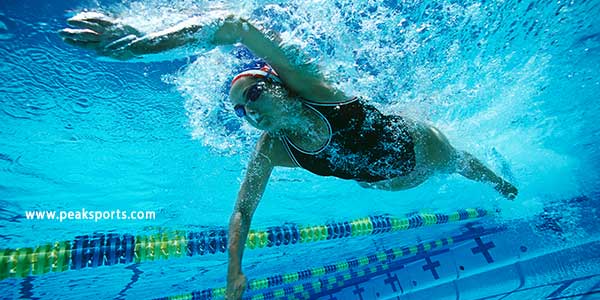
Letting Go of Expectations
Have you ever been so frustrated with a lack of improvement and not reaching your expectations that training and practicing just doesn’t seem worth the time and effort?
At times you feel like walking away from competing just because you feel so burned out or lack enthusiasm?
Sports can be demanding, but some athletes increase those demands by putting excessive pressure upon themselves. These athletes can become too focused on results that they heap unrealistic expectations upon themselves.
They EXPECT that they should achieve a personal best in all competitions.
They EXPECT that they should hit certain personal standards in each game or competition.
They EXPECT they should beat certain opponents or win certain tournaments.
They EXPECT perfection.
They EXPECT to achieve their personal goals every year despite unfortunate circumstances.
When athletes fall short of their expectations, frustration ensues, doubts creep in, confidence drops, mental and physical energy wanes, passion dwindles and burnout starts to set in.
Many athletes try to ramp up the efforts when they are just not seeing results. They train harder. They train longer. They enter more competitions. They seek out more coaching. All of which end up being counterproductive.
When you experience burnout, the physical and mental efforts no longer seem to make sense and all you want to do is move on from the anxiety and frustration you feel.
70% of children quit organized sports by the time they are 13 years old. Burnout, not having fun, and losing interest are some of the culprits of sports dropout.
Many professional athletes, Olympians and elite athletes experience burnout.
Take for instance, Hali Flickinger… Flickinger is a USA Swimming national champion, NCAA national champion and a 2016 Olympian yet she took a lengthy break from competing after frustration over a lack of results.
FLICKINGER: “I was becoming really impatient with the lack of results. I knew how I was training. My coaches knew how I was training. And I was nowhere near what I believed I could do. It was years after years of being disappointed. I was just tired of that feeling and needed to step away from the sport in order to remember why I am doing this — because I love the sport.”
Flickinger’s result focus wore on her mentally leading to her break from swimming.
FLICKINGER: “I was becoming more concerned about the outcomes and being so disappointed in myself that I really needed to step back and find my love (for swimming) again. I really believed that once I found that, the results would come.”
Once Flickinger stepped away from competing, she developed a renewed perspective, regained her passion for competing and posted the fastest 200-meter butterfly time in the world for 2019.
To avoid burnout, you need to let go of those excessively high expectations and demands for achieving certain standards.
How to Avoid Burnout and Dropout:
Results will follow when you feel rejuvenated. Obsessing about how far you are from reaching your goals only instills a feeling of failure.
Find the right fuel to drive your passion. “Why do you do what you do?” the late Ken Ravizza would ask his athletes.
Understand why you compete and having the right motivation to compete will keep you in the game.
Be mindful of striving to meet expectations, worrying about what others think about your game, and being motivated by fame or popularity. These are not good motivators.
And always remember that you are a person first that happens to compete in sports!
Related Sports Psychology Articles
- Fear of Meeting Other’s Expectations and Pressure
- When Athletes Fail to Meet Others’ Expectations
- How Athletes Can Manage Expectations
*Subscribe to The Sports Psychology Podcast on iTunes
*Subscribe to The Sports Psychology Podcast on Spotify
Download a free sports psychology report to improve your mental game!
Learn more about our one-on-one mental game coaching.
The Fearless Athlete

For the last two decades, I’ve been working with athletes and helping them optimize their physical ability by teaching them the secrets of top performing athletes. Now, you too can learn how to regain that child-like fearless attitude.
Mental toughness is what separates the winner from the loser in any competition. Champion athletes train hard in practice, perform without fear in competition, and trust their skills in crunch-time.
The Fearless Athlete program is ideal for any athlete that wants to overcome fear of failure and uncover inhibiting perfectionistic traits; or for any coach or parent who wants to teach athletes to perform with trust and freedom in competition.
